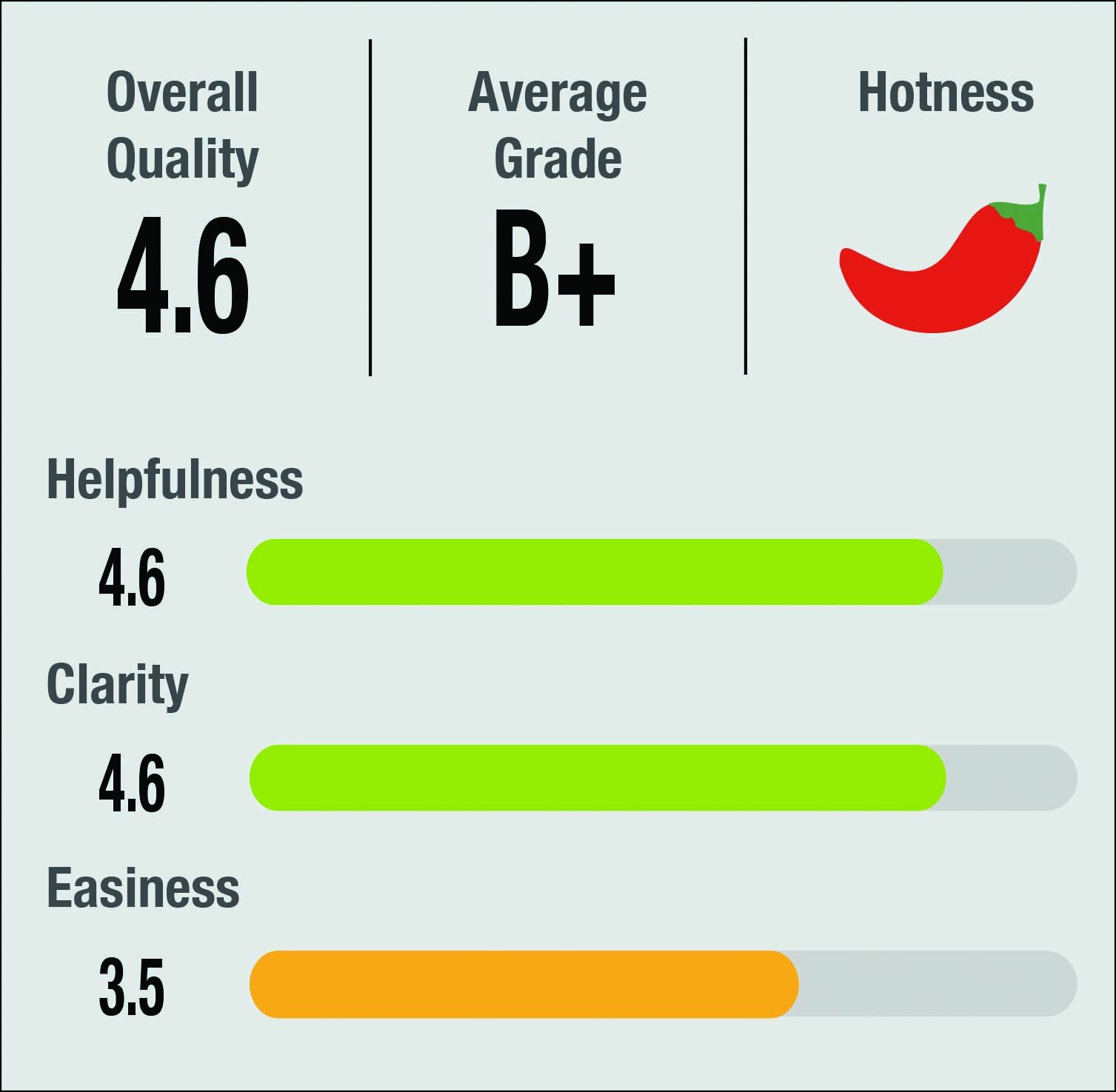Rate My Professors chili pepper faces heat
Rate My Professors, a website students often use to help them choose instructors, has removed its controversial chili pepper “hotness” rating after backlash from some professors. Graphic by Emma Reith
The chili pepper has lost its sizzle. Rate My Professors, a website students often use to help them choose professors and classes, removed its controversial “hot or not” scale in June 2018 after it received backlash from professors on Twitter. This rating, indicated by a chili pepper cartoon, measured a professor’s physical attractiveness, not the teaching methods used in the course.
“I think it’s funny, but I don’t think it would be the first thing I think about regarding my college classes,” said Lauren Sieberg, a freshman creative writing major.
The scale was removed in June of last year, after several teachers began to protest against the website and demanded its removal, according to USA Today. Many professors thought it was sexist and that it took away from female professors’ credibility.
BethAnn McLaughlin, a neurology professor at Vanderbilt University tweeted in June 2018, that the scale was “obnoxious” and that “life is hard enough for female professors.” Two days after her tweet – which has almost 3,000 retweets and 15,000 likes – Rate My Professors’ Twitter account responded.
“@McLNeuro The chili pepper rating is meant to reflect a dynamic/exciting teaching style. But, your point is well taken and we’ve removed all chili pepper references from the Rate My Professors site,” the website’s account tweeted June 28.
Rate My Professors also published a “hottest professors of the year” list until 2017. Junior computer science major Abby Tan has used the website, but has only ever looked at the scale as a joke, she said.
“I never took it seriously. It was more of a fun feature where I could tell my friends how attractive my professor was and I would use it as evidence to prove that I wasn’t the only one,” she said.
English professor Eileen Jankowski believes the website is not a worthwhile tool for students. In her experience, the comments can be biased.
“It seems as though students who are unhappy are more likely to post or rate,” she said.
Jankowski, who has a 4.5 “overall quality” rating on Rate My Professor, added that employees don’t get to choose their bosses or supervisors in the real world.
“You have to adjust to different teaching styles and recognize that people have different personalities,” she said.
Junior television writing and production major Elise Fitzsimmons has used the site to try to figure out how difficult the course is, but never the attractiveness of her professors.
“I think they took it off because it made the site look childish and gossipy instead of informative,” she said.
Ariana Bucio, a sophomore business administration major, agrees that the “hot or not” rating is unnecessary. Rate My Professors has ratings of other criteria – like “overall quality,” “level of difficulty” and “would take again,” so the website doesn’t need to say how attractive the professors are, Bucio said.
Senior English major Courtney Cummings agrees the scale shouldn’t have been taken seriously, as it undermines the skills a professor has. Cummings believes that while many students may take the chili pepper scale as a joke, there might be some unintended consequences.
“It doesn’t seem harmful unless people really start dragging on professors or being derogatory,” Cummings said. “I don’t like the idea of female professors being objectified that way, so I wouldn’t like that on male professors either. Either way, it seems like the best idea is to take it off, because who actually cares?”

